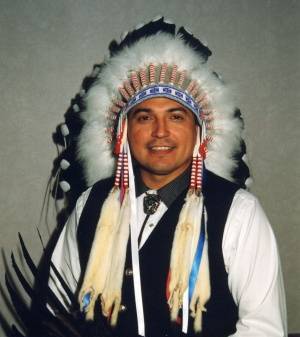OTTAWA, ON–(Marketwired – January 26, 2016) – In a landmark ruling released today, the Canadian Human Rights Tribunal found that the Canadian government is racially discriminating against 163,000 First Nations children and their families by providing flawed and inequitable child welfare services (“FNCFS Program”) and failing to implement Jordan’s Principle to ensure equitable access to government services available to other children.
The Truth and Reconciliation Commission listed child welfare equity and reform as its top Call to Action as there are more First Nations children in foster care today than at the height of the residential school era. The Tribunal found that the federal funding formula provides First Nations child and family services agencies with fewer resources than their provincial counterparts. Several years ago, federal government officials pegged the funding shortfall at between 22 per cent and 34 per cent less than what other children receive. Moreover, the Tribunal found that federal funding formulas and policies create a perverse incentive to place First Nations children in foster care and do not address the cultural needs of children.
In its decision, the Canadian Human Rights Tribunal said, “[T]he Panel acknowledges the suffering of those First Nations children and families who are or have been denied an equitable opportunity to remain together or be reunited in a timely manner. We also recognize those First Nations children and families who are or have been adversely impacted by the Government of Canada’s past and current child welfare practices on reserve” and ordered Ottawa to “cease its discriminatory practices and reform the FNCFS Program and the 1965 [Ontario] Agreement to reflect the findings of this decision. AANDC is also ordered to cease applying its narrow definition of Jordan’s Principle and to take measures to immediately implement the full meaning and scope of Jordan’s Principle.”
In response to the decision, Cindy Blackstock, executive director of the Caring Society says:
“This is a great day for First Nations children and all Canadians who believe in justice and fairness. Racial discrimination against children must not be tolerated and it is vital that Canadians watch the government’s actions closely to ensure the ruling is implemented and inequalities in other First Nations children’s services such as education, health and basics like water and housing are fully addressed.”
In the words of the Tribunal, “Canada’s statements and commitments [to reform the FNCFS program], whether expressed on the international scene or at a national level, should not be allowed to remain empty rhetoric.”
The First Nations Child and Family Caring Society (Caring Society) is a national non-profit organization dedicated to the wellbeing of First Nations children and their families.
For more information: see: www.fnwitness.ca
Copy of the ruling available: http://decisions.chrt-tcdp.gc.ca/chrt-tcdp/en/nav.do andwww.fnwitness.ca
Allegation before the Canadian Human Rights Tribunal
In February 2007, the First Nations Child and Family Caring Society (Caring Society) and the Assembly of First Nations (AFN) filed a complaint alleging that the Department of Indian and Northern Affairs (INAC) provision of First Nations child and family services was flawed, inequitable and thus discriminatory under the Canadian Human Rights Act. This case marks the first time in Canadian history that the federal government has been held to account for its contemporary systemic treatment of First Nations children before a legal body that can order a binding remedy.
Jordan’s Principle
Jordan’s Principle aims to ensure that First Nations children can access government services on the same terms as other children. It is named after Jordan River Anderson from Norway House Cree Nation who spent over two years unnecessarily in hospital because of funding disputes between Health Canada, INAC and the Government of Manitoba about who should pay for his at home care. He died in hospital at age 5 — having never spent a day in a family home. In December 2007, Parliament unanimously passed motion 296 in support of Jordan’s Principle. The federal government has never properly implemented it and First Nations children continue to suffer as they are denied services available to all others. More info:www.jordansprinciple.ca
The Canadian Human Rights Tribunal (www.chrt-tcdp.gc.ca)
The Tribunal adjudicates complaints filed under the Canadian Human Rights Act. The Tribunal has the authority to make a legal determination of discrimination and order binding remedies.
Key Facts
Child welfare equity and reform as well as full and proper implementation of Jordan’s Principle are the Truth and Reconciliation Commission’s top Calls to Action (www.trc.ca).
According to the latest statistics available, First Nations children are five times more likely to be the object of a substantiated child welfare report and 12 times more likely to be placed in foster care than non-indigenous children. This dramatic over-representation is due to poverty, poor housing and addictions related to the multi-generational impacts of residential schools. This is made worse by the discriminatory federal child welfare funding to respond to these needs. Federal government data shows that between 1989 and 2012, First Nations children on reserve and in the Yukon spent over 66 million nights in foster care.
The Tribunal found that the failure to provide adjustments for inflation since 1995 (and since the mid-2000s for some aspects of the formula) is discriminatory. During the period of 1995 to 2015, the Consumer Price Index increased by 44 per cent and public sector wages increased above the CPI.
A 2012 federal government document estimates the funding shortfall to be at least $108 million per year, without taking inflation into account or other significant shortfalls in the formula such as the lack of funding for culturally based standards, funds for proper offices and vehicles for safely transporting children.
The First Nations population is the youngest segment of the Canadian population. Among First Nations, children aged 0-14 constitute 30.4 per cent of the population, whereas children of the same age group constitute 16.5 per cent of the non-indigenous Canadian population.
This is the only known case in the developed world where a national government has been held to account for its current treatment of a generation of Indigenous children before a body that can make binding orders.
Embedded Video Available: https://www.youtube.com/watch?v=pHPHUHYq8A8




Be the first to comment on "Canada is found to be racially discriminating against 163,000 First Nations children"